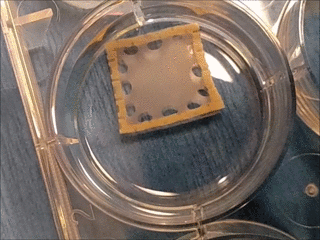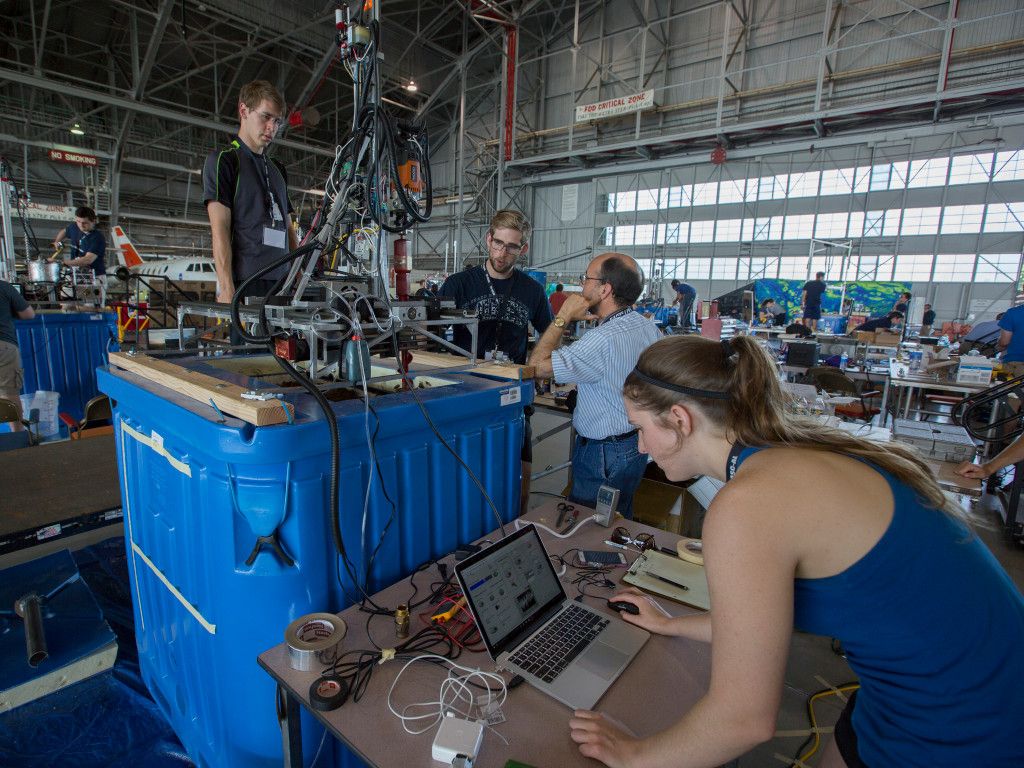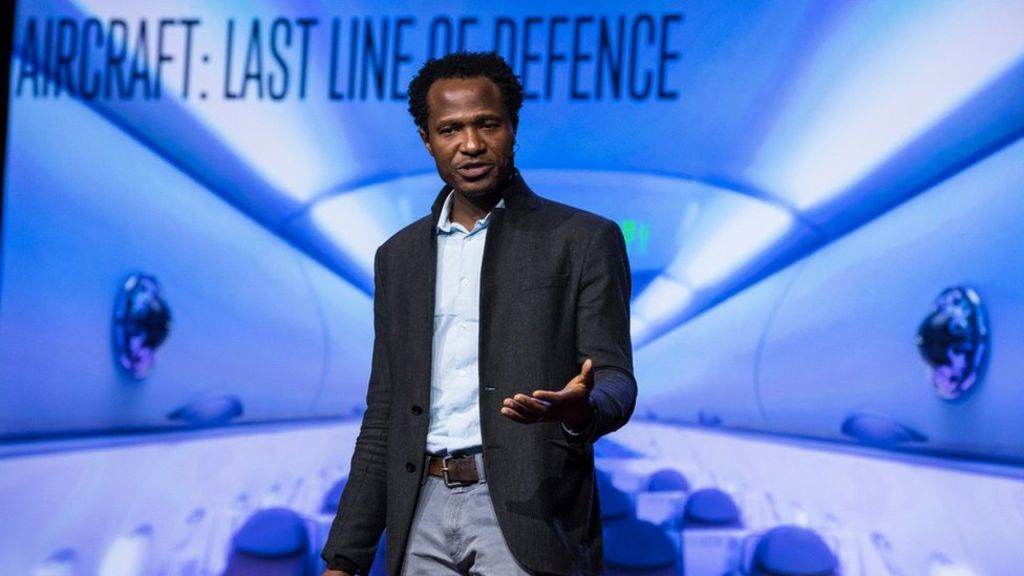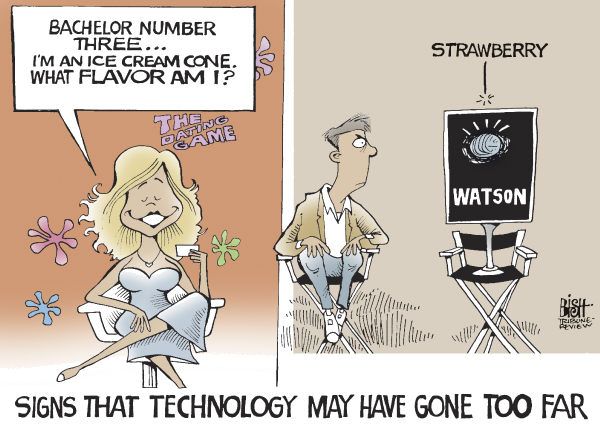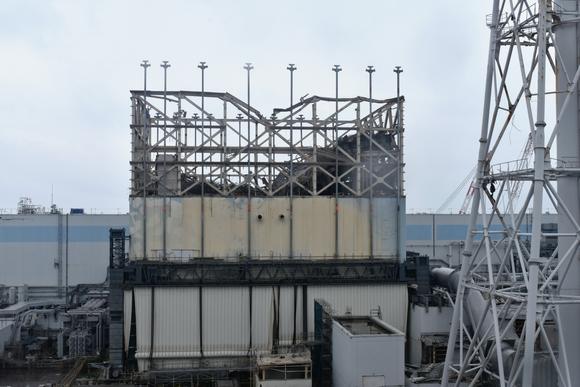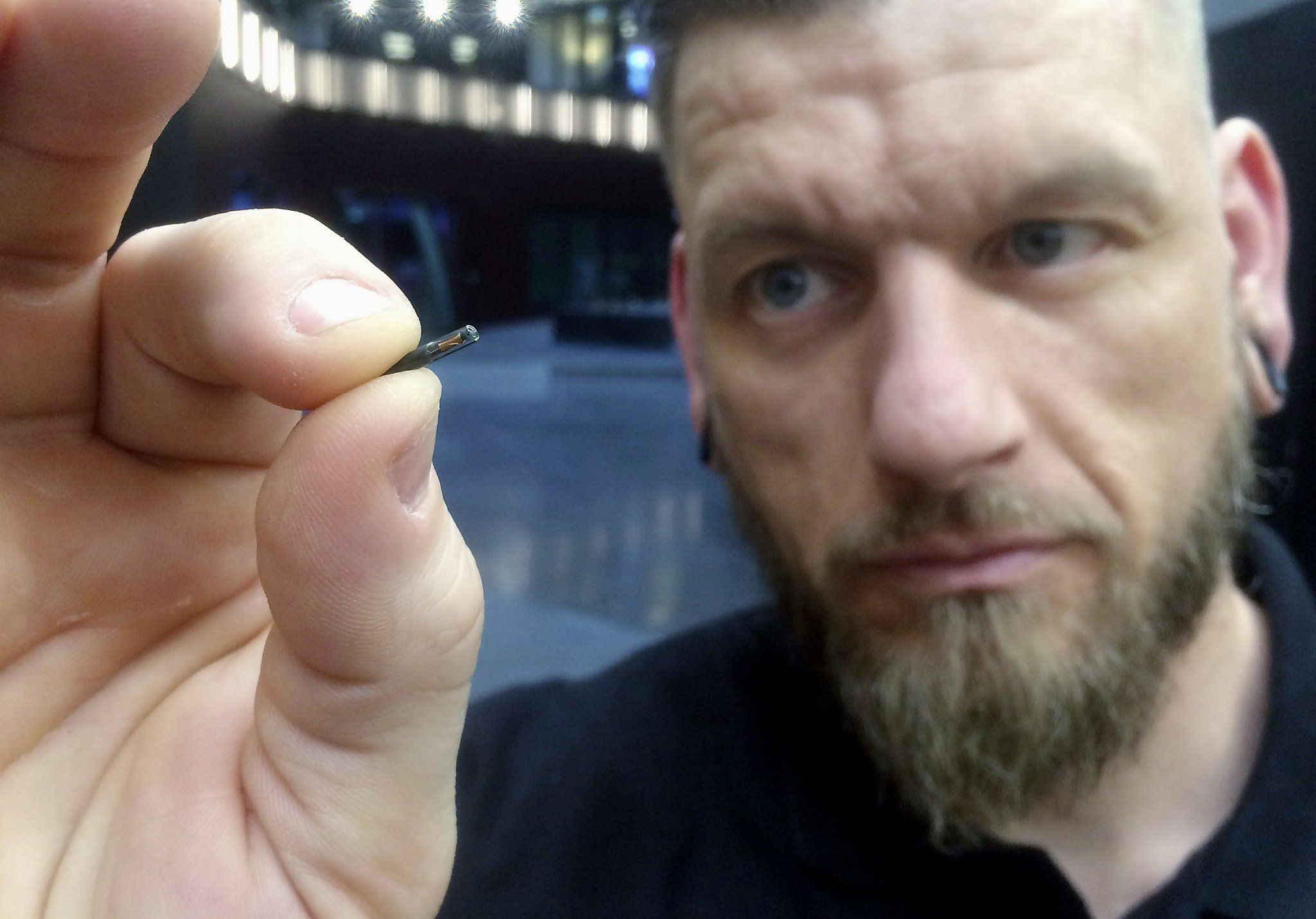Page 10145
Aug 28, 2017
School of Mines hopes to launch first-ever space mining program
Posted by Klaus Baldauf in categories: bioengineering, education, space
The Colorado School of Mines is no longer concerned with just earthly matters.
The world-renowned science and engineering institution in Golden is now eyeing asteroids, the moon, Mars and beyond to explore, extract, process and use the raw materials they provide to help sustain life in space.
Mines hopes to launch a first-of-its kind interdisciplinary graduate program in space resources in 2018, pending approval by school leaders. The first course, Space Resources Fundamentals, is being offered as a pilot program this fall.
Continue reading “School of Mines hopes to launch first-ever space mining program” »
Aug 28, 2017
TEDGlobal: The computer that can smell explosives
Posted by Julius Garcia in categories: robotics/AI, security
Nigerian Oshi Agabi has unveiled a computer based not on silicon but on mice neurons at the TEDGlobal conference in Tanzania.
The system has been trained to recognise the smell of explosives and could be used to replace traditional airport security, he said.
Eventually the modem-sized device — dubbed Koniku Kore — could provide the brain for future robots.
How about smiling with some comics on Artificial Intelligence and Robots?
Blade Runner: 2049’s upcoming release is quickly approaching us. We will have to hold out two more months to learn what those mysteries may be.
Aug 27, 2017
‘Muscle robots’ being developed to remove debris from Fukushima reactors
Posted by Dan Kummer in categories: engineering, nuclear energy, robotics/AI
TOKYO — A joint venture between Japanese and American high-technology power houses Hitachi and General Electric is developing special robots for removing nuclear debris from the Fukushima Daiichi nuclear power plant, the most difficult task in decommissioning the plant’s six reactors, three of which suffered core meltdowns in the March 2011 accident.
The machines under development by Hitachi-GE Nuclear Energy are called “muscle robots,” as their hydraulic springs operate like human muscles. The company, based in Hitachi, Ibaraki Prefecture, is stepping up efforts to complete the development project in time for the start of debris removal in 2021.
Hitachi-GE is testing the arms of the robots at a plant of Chugai Technos, a Hiroshima-based engineering service company, located a 30-minute drive from the center of the city. The testing is taking place in a structure with a life-size model of the primary containment vessel of the No. 1 reactor at the Fukushima plant. The robots awkwardly move about, picking up concrete lumps standing in for fuel debris.
Continue reading “‘Muscle robots’ being developed to remove debris from Fukushima reactors” »
Aug 27, 2017
Leather grown using biotechnology is about to hit the catwalk
Posted by Dan Kummer in categories: biotech/medical, business, media & arts, military
LEATHERMAKING is an ancient craft. The oldest leather artefact found so far is a 5,500-year-old shoe from a cave in Armenia, but paintings in Egyptian tombs show that, 7,000 years ago, leather was being turned into all manner of things, from sandals to buckets to military equipment. It is a fair bet that the use of animal skins for shelter and clothing goes back hundreds of thousands of years at least.
Leathermaking is also, though, a nasty business. In 18th-century London the soaking of putrefying hides in urine and lime, to loosen any remaining flesh and hair, and the subsequent pounding of dog faeces into those skins to soften and preserve them, caused such a stench that the business was outlawed from the City proper and forced downwind and across the river into Bermondsey. In countries such as India and Japan, the trade tainted people as well as places and was (and often still remains) the preserve of social outcasts such as Dalits and Burakumin.
Aug 27, 2017
Mattis to troops: “Hold the line” until U.S. is less divided
Posted by Mark Larkento in category: military
Defense Secretary Jim Mattis, 66, a retired Marine four-star general, in impromptu remarks to troops abroad, in a Facebook video:
It’s good to see you all out here, young men and women. For those of you that I haven’t met, my name’s Mattis. I work at the Department of Defense, obviously… And thank you for being out here, OK? I know at times you wonder if anybody knows… The only way this great big experiment you and I call America is going to survive is if we got tough hombres like you…
You’re a great example for our country right now. It’s got a few problems. You know it and I know it. It’s got problems that we don’t have in the military.
Continue reading “Mattis to troops: ‘Hold the line’ until U.S. is less divided” »
Aug 27, 2017
Ice Cream That Doesn’t Melt is Being Sold in Japan
Posted by Yugal Agrawal in category: food

Now a long lasting ice cream which does not melt soon is available and being sold in Japan, which is scientifically proven.
Aug 27, 2017
The Coming Singularity: Ray Kurzweil
Posted by Müslüm Yildiz in categories: computing, engineering, neuroscience, Ray Kurzweil, singularity

By 2045, we’ll have expanded the intelligence of our human machine civilization a billion fold. That will result in a technological singularity, a point beyond which it’s hard to imagine…
“Well, by 2020 we’ll have computers that are powerful enough to simulate the human brain, but we won’t be finished yet with reverse engineering the human brain and understanding its methods.”
Aug 27, 2017
Chip implants make humans more efficient
Posted by Zoltan Istvan in categories: biotech/medical, computing, food, neuroscience, security, transhumanism
My new Op-Ed for The San Francisco Chronicle: http://www.sfchronicle.com/opinion/openforum/article/Chip-im…003194.php #transhumanism
Wisconsin company Three Square Market recently announced it will become the first U.S. company to offer its employees chip implants that can be scanned at security entrances, carry medical information and even purchase candy in some vending machines. A company in Europe already did this last year.
For many people, it sounds crazy to electively have a piece of technology embedded in their body simply for convenience’s sake. But a growing number of Americans are doing it, including me.
Continue reading “Chip implants make humans more efficient” »
